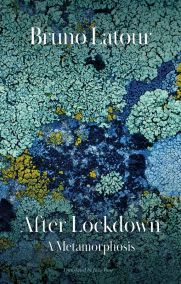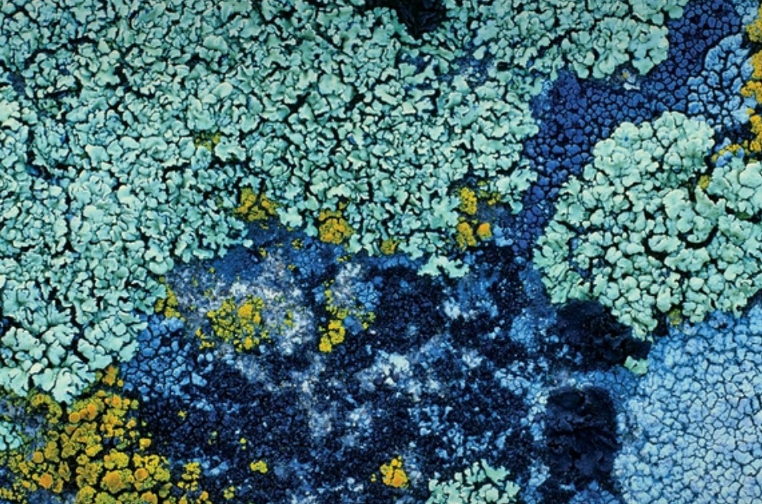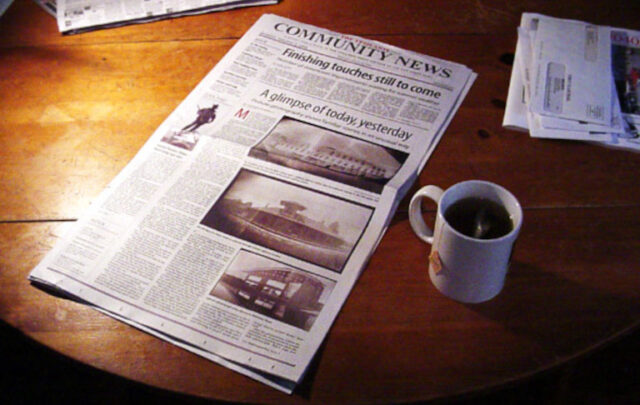 This piece is excerpted from After Lockdown by Bruno Latour, published by Polity Press, and is republished her with permission of the publisher.
This piece is excerpted from After Lockdown by Bruno Latour, published by Polity Press, and is republished her with permission of the publisher.
It’s really weird, I know, to want to draw lessons from this repeat lockdown to the point of turning it into an almost metaphysical experience. And yet, it is indeed the physical – meta-, infra-, para- – that we’re dealing with, because this ordeal has forced us to acknowledge that we don’t yet know where we’ve been locked-down; that we don’t feel the consistency, the resistance, the physiology, the resonance, the combining, the overlap, the properties or materiality of the things that surround us, the same way we used to do. While the Moderns hoped to change times, now they’re obliged to re-learn how to situate themselves in space. Only two years ago, we organised seminars to try to probe the sources of insensitivity to the climate issue. Now, everyone knows that it is indeed an issue; but that doesn’t mean we know how to react to it. This is because, behind the political question – ‘What can we do? How can we get out of this?’ – another question has cropped up: ‘Where the hell are we?’ Thanks to the lockdown and even to these horrible masks that swallow up our faces and suffocate us, we’ve come to feel that behind the political crisis, a cosmological crisis has erupted. We never have encountered an ‘inert thing’, no more in the city, where everything is the work of living things, than in the country, where everything preserves traces of the action of living things.
This is not the first time this has happened, of course. The future industrial nations went through many mutations of the same order, especially at the turn of the sixteenth and seventeenth centuries. That’s when those nations were dragged out of the old finite cosmos, where they felt like they were lying around confined, before being sent hurtling into the infinite Universe outlined by the violent seizure of the ‘New World’, a violence intensified by the stupefying discoveries made by scientists from Copernicus to Newton. Everything had to be overhauled – the law, politics, architecture, poetry, music, government and, of course, the sciences – to cope with this initial metamorphosis. And to accept the idea that the earth, having become a planet among others, had started turning. Ever since Galileo, the idea had indeed been that we were going to live in another world: the Universe, transferred, grafted, transplanted on to earth. But Earth is made of quite different matter. Yet another world revealed beneath the other world. Will history close in on itself once more? It’s a history full of pitfalls. How can we curl up in this particular history without losing the plot?
The world is turning, once more, today, but this time on and by itself, and we find ourselves again in the middle of it, slotted in, confined in it, stuck in the critical zone, without being in any way able to make the same great gesture of liberation. I feel more like a load of washing in the drum of a washing machine, turning furiously, under pressure and at high temperature! We need to reinvent everything all over again – the law, politics, the arts, architecture, cities. But – and this is stranger still – we also need even to reinvent movement, the vector of our actions. We need to not forge ahead into the infinite, but to learn to step back, to unplug, in the face of the finite. That’s another way of liberating yourself. A form of feeling your way, and, curiously, of becoming capable again of reacting. Yes, yes, I know, ‘reacting’ and ‘reactionary’ have the same root. Too bad! It was always forging ahead that shut us away, so now it’s learning to step back that is de-confining us. We need to recover our capacities for movement, yes, our powers to act. It’s always this becoming-an-insect that allows other forms of movement, as a crab, as a cockroach. There is beauty, there is dancing, in the rhythmic reptation of my Gregor.
Nothing shows this paradox more clearly than the excellent idea of calculating ‘Earth Overshoot Day’, a calculation that reveals a temporal rupture as marked as the spatial rupture. Even if it’s perfunctory, this indicator allows us to endow each nation-state with an increasingly precise date that corresponds to the day of the year when the state’s ‘production system’, to use an outmoded term, will have exhausted what the planet has provided for that state’s use. To stay within the limits – or, at least, the current known limits – each state would have to push back the date as far as possible, ideally as far as 31 December. We’re obviously not there. It seems that humanity, taken as a whole, overshot its limits on 29 July, then has gone on living the rest of the year till 31 December ‘beyond its means’, in debt to the planet – a debt of five months, deferred, obviously, carried forward to next year’s assessment!
That gives an idea of the ubiquity and violence of the conflict between the Extractors and the Menders. In their indifference, the Extractors never cease bringing the overshoot date further forward in the year – if we let them have their way, we will have exhausted the whole year’s resources before Candlemas. The Menders are trying to push it back as far as possible – ideally to New Year’s Eve – which is what happened in the northern spring of 2020. Thanks to lockdown, we were able to record a retreat of three weeks in overshoot day. A very temporary retreat, which the year 2021 risks shifting again, only in the wrong direction, thanks to the ‘economic recovery’. (It appears that other terrestrials, viruses of course, but also foxes, perch, otters, dolphins, humped-back whales, coyotes, took advantage of the retreat to cavort a little – and blackbirds, to get their singing better heard!)
We can gauge the violence of the power struggle between the Extractors and the Menders if we imagine the terrible ordeals that had to be undergone just to shift by a few weeks the overlap of the two worlds, the times we live in, and after that – the rest of the year – the times we live off and which we ignore. It takes a global economic crisis to claw back a few days – before losing them again! Nothing in the old scenography, when the parties to class conflicts unanimously backed ‘production development’, gives any idea of the scope of the tasks that need to be carried out by those who aim to ‘push back overshoot day’. Especially when those who wish, on the contrary, to bring it forward are countless and powerful. Those tasks aren’t about development anymore. Following the logic of lockdown, they’re all about envelopment. How can we hang on to the idea of liberation if we have to accept slotting into, engaging in such contests? It’s easy to understand the temptation to go back to being old-fashioned humans and to stick to the previous metamorphosis, the one offered by the ‘Great Discoveries’ celebrating escape to the infinite cosmos.
And yet – this is what’s so amazing – we’re all already there. We’ve all already mutated without realising, since the political horizon, what’s known as the ‘international order’, is completely defined, explicitly and quite openly, by the challenge of maintaining the envelope in which present history unfolds, in a sphere, in a bubble, between limits, the limits defined for the moment by the famous two-degree rise in global temperature. The New Climate Regime is in fact a new political régime. You wouldn’t think so, looking at national politics, and yet global politics has already tipped over to this other world that the confined have had a foretaste of and the deconfined are discovering with alarm. It’s a world they will never leave, curved, circumscribed, held together by a sort of membrane, tent, sky, yes, atmosphere, conditioned air, which they’ll have to live inside, among agencies that will never again take the form of a landscape of ‘inert things’.
Amazing lag: while international politics has already shifted radically, the scientific source of this understanding of soil remains obscure. More than obscure: almost unutterable. And yet, why make those famous ‘two degrees’ the goal to be obtained by every global, national, local or personal decision, if the proof were not already surreptitiously accepted that Earth is indeed the hazardous product of a machinery of living things that has till now provided conditions of liveability and that we sense, through thousands of vague experiences, is today undermined by our actions? For us to be so scared of damaging it, we must have accepted as obvious fact the existence of a sort of fabulous ‘thermostat’ whose dial ‘humanity’ – that unlikely actor! – has access to in order to regulate it. A double feedback loop, the first involving living beings able to create their own conditions of existence, into which the second feedback loop is slotted: the action of these living beings among others that are so close and so different, friends and enemies, industrialised humans, on those same conditions of liveability. Double lockdown, double envelopment, double muddle.
Earth, or Gaia, is already organising the political horizon while its scientific existence is unknown, scorned or denied and its metaphysical consequences remain invisible. Drawing a parallel between the earth that turns in Galileo’s sense and the earth that turns on itself in the sense meant by James Lovelock and Lynn Margulis, as I try to do in a hundred different ways with Frédérique Aït-Touati, means creating a bit of a scandal every time. For once, official policy – the famous climate accords – is ahead of scientific mindsets. People go on behaving as if it were a mere stroke of luck that organisms ‘adapt’ to their environment, as if they hadn’t provided the latter for themselves, by making it favourable when it wasn’t. And, consequently, as if they couldn’t, in their turn, make it favourable or unfavourable depending on the action of these living beings among others that are human beings – living beings much too much in a hurry. It’s not surprising that common sense is in tatters.
They’re asking us to act as if we were living with Earth, when they’re doing everything they can to see that we move out of it. Bit of a contradictory order! Regime crisis, indeed, if what we mean by that is that it’s all about a planetary regime.
Earth exercises an authority that thwarts, disrupts, contests the modes of sovereignty of the nation-states that organised the carving up of land in the modern era. Oh no, it’s not a matter of a sovereignty from above that’s swooped down and globalised those of the states into a single incontestable power, a sort of ersatz ‘global government’. It’s that Earth is not global. Its mode of behaving, of expansion, of contamination has scarcely changed since the first bacteria succeeded in covering our ancestral planet with a film a few centimetres thick. This film has got thicker, bigger, more spread out, but always step by step, so that after four and a half billion years, it has still not exceeded the few kilometres of the critical zone. This particular contamination, this viral form of behaviour, simply can’t be accommodated in the dazzling emblems of power imagined by the empires. No palace, pyramid, codex, prison, colonnade, dome or globe. No religion. No deification.
And yet, there is certainly the exercise, multifaceted and multiscaled, of that form of power that devolves on those who can describe themselves, collectively, as autonomes and autochthones. Autotrophs can only describe themselves, strictly speaking, as being from Gaia, the planet we can’t overshoot and can never leave. In that sense, then, it’s sovereign. But this sovereignty comes from below and through step-by-step concatenation. In spite of the presence of forms of the globe that always slip into its representation and are all borrowed from human empires, Earth is in no way englobing. We are confined to it but it’s not a prison, it’s just that we’re rolled up in it. Freeing ourselves doesn’t mean getting out of it. It means exploring its implications, folds, overaps, entanglements.





